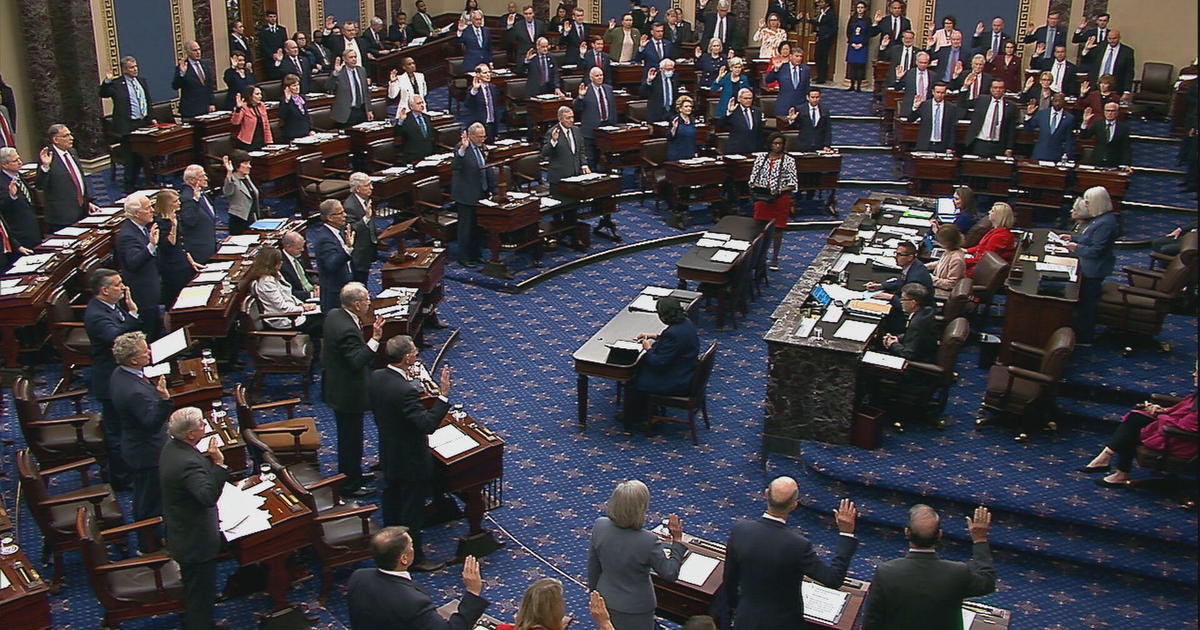GOP tax bill: How the new tax plan will affect you
Congress on Wednesday passed the "big, beautiful" tax cut President Trump long promised, without the support of a single Democrat. Soon the president will sign the biggest change to tax law in 30 years -- perhaps before he heads to Mar-a-Lago for his holiday break.
Here's a look at some of the highlights in the new tax plan and how they'll affect you:
When does it go into effect?
If the bill is signed before the end of the year, you'll see some of the impact in a couple of weeks, likely by February. The most obvious change will be in your income. Because the income tax rates will be lower, employers will take out less money from many workers' paychecks. So many Americans will see their take-home pay rise.
Other changes won't affect you until you file your 2018 taxes, which are due in April 2019. That is, your 2017 income is and was taxed under the current law, so when you file your returns by April next year, it's the law in effect now that will govern your filing. A notable exception is the Obamacare penalties -- if you don't have health insurance, you won't have to pay the pretty hefty fee for not being covered (see below).
How will the tax plan affect homeowners or home buyers?
The mortgage interest deduction will stay in place for all homeowners with existing mortgages. If you're about to buy a home, the home mortgage interest deduction will be available for mortgages up to $750,000.
Can I still deduct my state and local taxes?
Up to a point, and you'll have to make a choice. Filers will be able to write off the cost of state and local taxes, up to $10,000. And they must choose from among sales, income and property taxes for the deduction, instead of being able to deduct all local taxes.
What if I give to charity?
The charitable deduction will remain as it is. So, if you itemize your deductions, you may be able to deduct charitable contributions that are made to qualifying organizations. According to the IRS, you may deduct up to 50 percent of your adjusted gross income, although some filers are limited to 20 percent and 30 percent.
Do I still have to pay Obamacare penalties if I don't have health insurance?
Nope. The final version of the measure eliminates that fee.
Under current law, you would owe 2.5 percent of your household income or $695 per adult and $347.50 per child under 18 -- whichever amount is higher -- and that fee would have been adjusted upwards for inflation in every subsequent year.
How big a tax cut did corporations get?
The tax legislation lowers the corporate tax rate from 35 percent to 21 percent. It's one point higher than the original 20 percent in the House and Senate bills, but still a massive cut.
What's the deal with the alternative minimum tax?
For corporations, the AMT disappears.
That's not the case for individual filers, but fewer will have to pay it, at least.
- Exemption amounts will increase from $84,000 for joint filers under the current law level to $109,400. Single filers will see that number increase from $54,300 to $70,300.
- The exemption currently phases out for joint filers at $160,900, and $120,700 for individuals. Under the tax bill, that phaseout would kick in at $1 million for married filers and $500,000 for those who are single. Above the threshold, filers lose 25 percent of their exemption, that is, $0.25 on every dollar in income.
If you're a pass-through company, known as an S-corporation...
Business owners who take their income in the form of a profit distribution, rather than a salary, are making what's known as "pass-through" income, which is taxed at personal income rates.
Under the tax plan, your company can "pass through" profits and losses on your personal income tax return, and you will be able to deduct your first 20 percent of income tax-free. Those in personal service businesses -- doctors or lawyers, for instance -- can only take this deduction if their taxable income is under $315,000 for married couples or $157,500 for single filers.
Children
Are your children in private school?
Under the tax plan, parents will be able to use up to $10,000 per year tax-free from 529 college savings accounts for K-12 tuition. According to the laws on the books right now, those funds can only be used for college plans.
Tuition waivers
Also, a proposal to tax tuition waivers has gone away -- GOP lawmakers had considered counting tuition waivers as income, which would make them taxable. Graduate students who would have owed considerably more can rest assured that their tax bills will not be seeing this hike in the tax plan.
What if I'm adopting a child?
The tax plan preserve the child adoption tax credit. The maximum adoption tax credit increased in 2017 to $13,570 from $13,460 in 2016.
What does the bill do to the child tax credit?
The child tax credit is doubling -- from $1,000 to $2,000, and during the conference process, Sen. Marco Rubio fought for and succeeded in securing an increase the refundable portion of the child tax credit to $1,400, a $300 increase over the $1,100 that was originally agreed upon.
What's happening to the standard deduction?
That's roughly doubling -- from $6,350 to $12,000 for individuals, and from $12,700 to $24,000 for married couples filing jointly.



